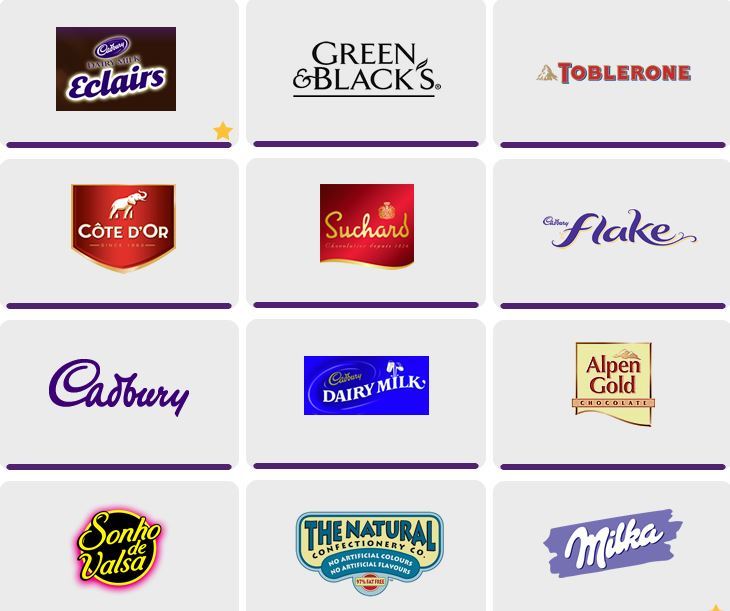“People skills are what set good and bad leaders apart,” says Werner Barnard, Finance Business Lead: Integrated Supply Chain at Mondel?z International. Barnard is an ambitious man, a business leader of the type that believes a strong finance background is a stepping stone to even greater things. Barnard has just landed at snack company Mondel?z, formerly known as Kraft Foods, after a career that saw him fulfil roles in the chicken processing industry and telecoms. Mondel?z is an international firm with 62 brands under its wings, including Cadbury’s chocolate, Jacobs, Tuc and Stimorol. The company has five factories in Africa: one in Port Elizabeth (chocolate), Namibia (‘seasonal’ chocolate), Swaziland (bubblegum, Halls and Eclairs), Botswana (chewing gum) and Kenya (drinking chocolate). “There is massive growth potential in Africa, so that makes it very exciting.”
“I am not a stereotypical bean counter. I am always very involved in the business,” he says. “Finance is one of my skills, but I personally want to move away from a pure finance role. As the finance business lead I am involved with procurement, customer service, logistics and warehousing. I want to play more and more of a business manager role.”
At the same time Barnard acknowledges that accounting and finance is the perfect start to a career. “65 to 70 percent of CEOs of South African listed companies are CAs,” he says. “I have been very driven about this from a young age. I believe finance is the best background for a good manager, COO or CEO. I believe it is easier to learn the operational side of a business, than to learn the financial side for an operational expert.” Barnard experienced being a CEO for a brief period at a subsidiary in Blue Label Telecom and it’s something he wants more of. “I definitely have that ambition,” he admits.
People skills are crucial for any leader who wants to step out of the finance world into a more general role, Barnard believes. “Making people feel valuable and motivating them to give their best is crucial, I personally believe that this is what sets good and bad leaders apart.” Barnard approaches his leadership role by “managing people, not processes”, he says. “It does not mean you should be too lenient or overly sympathetic, but you have to play to the strengths of your people. And of course recognition and reward is important – we all work because essentially we do need money to survive.”

Another aspect that makes for a smoothly working team is the work environment, says Barnard. “I strongly believe in rotation of duties and for the first time in my career I work for a company that is trying to encourage cross-functionality. People deliver better results if they are not trapped doing the same work for years, often in a parrot fashion. I also don’t keep strict 8- 5 working hours for myself and my staff. It is about the outcome, so it is less important when someone comes to the office or leaves.”
Like many ambitious finance professionals, Barnard has a tendency to be drawn into micro-management due to his strong focus on attention to detail– not always a bad thing, but not always sustainable either. “I have battled with maintaining a good balance of that for years. I have a very good eye for detail, especially after I have spent some time in an organisation. I always like to make sure the I’s are dotted and T’s are crossed. You start to get a gut feel for numbers. These days, I am attempting to drill into my staff that it is important not to just submit their work or complete tasks, but to take 10 minutes to review everything. With the right people in the right place, it is easier for me to take a step back.”
Barnard himself has been in a number of right places. “I started out in the food industry after doing articles with a firm of Chartered Accountants. I worked for Rainbow Chicken, the largest chicken producer in South Africa. I worked in various divisions, including agriculture and processing as well as the feed milling manufacture. I always wanted to work in fast moving consumer goods. The subsequent move to telecoms was not intentional, but it was exciting to work for a small company, before we were taken over by Blue Label Telecoms. I am now happy to be back in the food manufacturing space, where branding and marketing also play a big role.”

With regards to accounting the food industry is more complex than telecoms, says Barnard. “In telecoms the volumes of transactions are large, but the complexity is low. The IT is extremely important and onerous to control, but at Mondel?z – for example – there is a lot more complexity with sourcing materials, transfers between plants, product costing and an international billing system.”
Mondel?z is present in an impressive 165 countries worldwide. The South African is very keen to explore the international working opportunities the group offers. “Here in Johannesburg we have people from Poland, Egypt and Russia. Our headquarters are in Chicago. The company is known to promote from within. When I join a company I do so with the intention of building a long career as I am extremely ambitious. This enviroment allows you to stay in the company and still move up.”
If you also would like to share your ideas with the CFO community, please get in touch with us to arrange an interview with you.Please contact Jurriën Morsch on [email protected].
Stay connected, up to date and in the loop on what is happening in the world of finance by subscribing to our newsletter and following us on Twitter. Also to keep track of newly published interviews with CFOs and CEOs.










